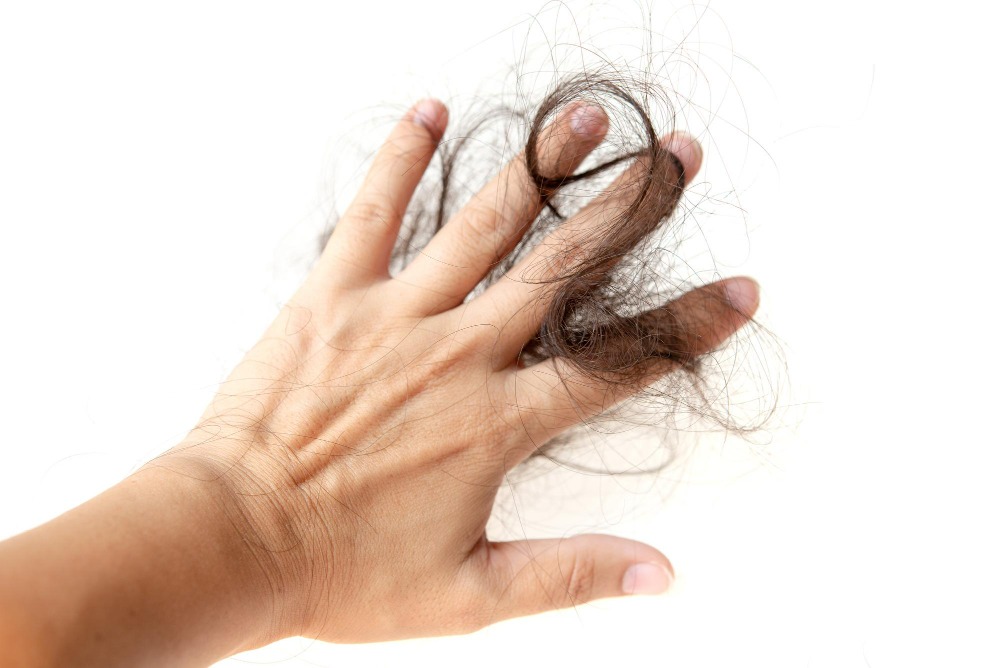The relationship between stress and hair loss

Stress is, unfortunately, something that many people deal with daily. From a busy family life to a high-pressured job, stress can cause hair loss to occur.
There are around 100,000 hair follicles on the average head, with each in a different part of the hair cycle. Let’s look at how stress can disrupt this cycle and how you can deal with both the stress and the hair loss.
Stress and hair loss
Your hair cycle is the way your hair grows. Each individual follicle is constantly cycling between resting and growing, however the majority are in the growth stage at any given time. Even though you lose hair daily, the average is about 100 hairs per day, which is minimal compared to the number of follicles on your head!
There are three main types of hair loss which can be caused by stress: telogen effluvium, alopecia areata and trichotillomania. Telogen effluvium is where extreme stress causes your body to push out hairs that are in the resting stage, causing significant fallout over several months.
The link between stress and alopecia areata is less concrete. In this condition, the body’s immune system attacks the hair follicles which prevents them from creating new hair.
Trichotillomania is defined as an irresistible need to pull out your hair, including your eyebrows and other parts of your body. Hair pulling can be a coping mechanism for dealing with stress or uncomfortable situations.
The warning signs
If you have a history of hair loss in relation to stress, you may be able to spot the warning signs of stress before the hair loss becomes too bad.
A common symptom of stress is sleeplessness so keep track of your nightly hours. You may still be sleeping a lot, but it may be restless or peppered with frequent wake-ups. Pay attention to your body, especially your heart rate. If you feel it racing regularly, then speak to your GP to rule out any other health issues.
How to deal with it
Whilst it is important to know that hair loss is usually temporary, that doesn’t make it any less stressful at the moment – something that might actually make it worse!
When it comes to hair loss itself, there are some ways you can help yourself. Hair loss vitamins are great for replenishing the natural stores in your body which promotes hair growth. If trichotillomania is the cause of your hair loss, then speak to your GP about a referral to a therapist for support.
Stress management is beneficial to everyone, whether you are experiencing hair loss or not. Take some time to reflect and identify your triggers. From there, you can begin to take control of the situation. Exercise and activity are also shown to help reduce stress, especially if it takes place outside in the fresh air.




